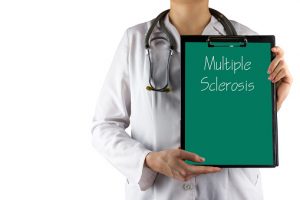 Multiple sclerosis (MS) and inflammatory bowel disease (IBD) link has been identified. Studies have shown an increase in IBD rates – specifically, Crohn’s disease and ulcerative colitis – in multiple sclerosis patients. IBD is characterized by inflammation of the intestines and colon, whereas multiple sclerosis destroys the protective coating around the nerves, disrupting the communication between the brain and the rest of the body.
Multiple sclerosis (MS) and inflammatory bowel disease (IBD) link has been identified. Studies have shown an increase in IBD rates – specifically, Crohn’s disease and ulcerative colitis – in multiple sclerosis patients. IBD is characterized by inflammation of the intestines and colon, whereas multiple sclerosis destroys the protective coating around the nerves, disrupting the communication between the brain and the rest of the body.
IBD inflammation can disrupt the intestinal epithelial barrier, leading to leaky gut syndrome. The loss of the epithelial barrier allows luminal antigens to abnormally activate the host-immune response, leading to a systemic autoimmune response.
Advertisement
In their study, researchers aimed to see whether Experimental Autoimmune Encephalomyelitis (EAE), a model for human MS in rodents, is accompanied by loss of mucosal immune homeostasis.
After inducing EAE in rodents, the researchers studied their intestinal tissue and found structural alterations in the intestinal epithelia of EAE mice together with increasing levels of infiltrated inflammatory T-cells, while regulatory T-cells responsible for suppressing the immune response were impaired.
Changes were observed before the onset of neurological symptoms and remained during the paralysis stage.
Researchers then transferred the EAE cells into healthy mice and observed the same structural changes as in the EAE mice.
Additional research is required to better understand molecular pathways needed to restore intestinal barrier homeostasis and provide innovative therapeutics to MS patients.
Treatment options for multiple sclerosis
Advertisement
Treatment for multiple sclerosis is lifelong, and although it cannot cure the condition, it aims to minimize symptoms and allow the patients to live a life as close to normal as possible. Some treatment methods include corticosteroids and plasma exchange, beta interferons, Glatiramer acetate, Dimethyl fumarate, Fingolimod, Teriflunomide, Natalizumab, Alemtuzumab, and Mitoxantrone, which all help to reduce the likelihood of relapses.
Other treatment methods include physical therapy to improve mobility, muscle relaxants, drugs to reduce fatigue, and other medications like antidepressants, medications to control the bowels and bladder, and medications to improve sexual function.
Exercise, meditation, yoga, and acupuncture are also recommended for reducing stress and improving overall mental and physical well-being.
